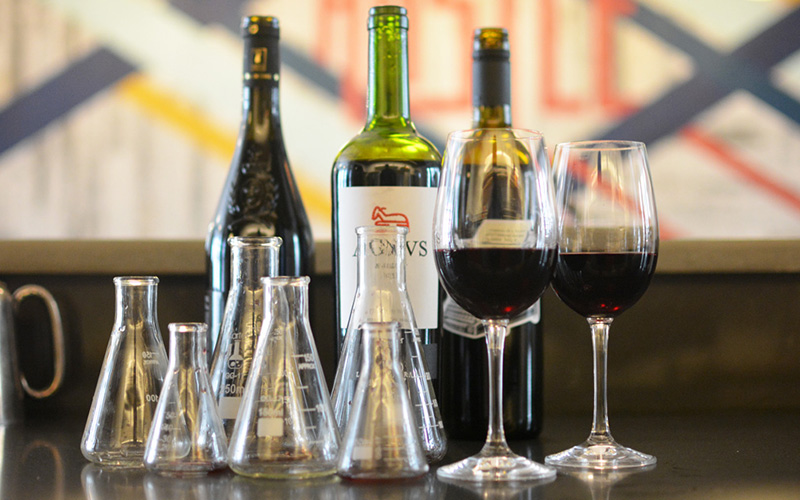A little wine each day may help remove waste from the brain, improving cognitive health, research finds
02/15/2018 / By Edsel Cook

Everyone knows an apple a day keeps the doctor away, but new research suggests a couple of glasses of good wine can drive dementia away, as reported in a Daily Mail article.
According to a recently-concluded study of a research team from the University of Rochester (UR), mice who received the equivalent of 2 1/2 glasses of wine each day became better at expelling certain waste products in the brain linked with Alzheimer’s disease and other forms of dementia.
For their experiment, the UR researchers exposed mice to different amounts of the alcohol compound ethanol on a daily basis for up to 30 days. They measured out low, intermediate, and high doses of 0.5, 1.5, and four grams per kilogram, respectively. The low dosage roughly correspond to 2 1/2 glasses of wine for human beings. These rodents were also subjected to a battery of cognitive and motor tests alongside a group of other mice that didn’t get a single drop of ethanol. To the experimenters’ surprise, the ethanol-exposed mice performed just as well as their “teetotaler” counterparts.
Dr. Maiken Nedergaard, the lead author of the study, first pointed out that extended intake of excessive amounts of ethanol is known to exert negative effects on the central nervous system. With that warning out of the way, she then explained the results of her team’s groundbreaking discovery.
“However, in this study we have shown for the first time that low doses of alcohol are potentially beneficial to brain, namely it improves the brain’s ability to remove waste,” she reported.
100% organic essential oil sets now available for your home and personal care, including Rosemary, Oregano, Eucalyptus, Tea Tree, Clary Sage and more, all 100% organic and laboratory tested for safety. A multitude of uses, from stress reduction to topical first aid. See the complete listing here, and help support this news site.
Neither Dr. Nedergaard nor her fellow researchers identified which particular color of wine was superior at purging the brain of dementia-causing waste products. They did mention that beer and other types of alcohol would likely achieve the same effect as wine if taken in the corresponding amounts.
There’s too much as a good thing, of course. The study warned that intermediate levels of exposure to ethanol impaired this cerebral cleaning capacity. The human equivalent is a 140-pound person drinking five ounces of wine with 12 percent alcohol content. However, mice did recover their ability to remove waste products from their brain around 24 hours after their exposure. So it’s not a permanent disability.
In much the same vein, excessive doses of alcohol were also found to inhibit waste removal in the brains of the mice. (In this case, “excessive” is an unhealthy 21 standard drinks worth of booze.)
“Prolonged intake of excessive amounts of ethanol is known to have adverse effects on the central nervous system,” said Dr. Nedergaard. “Unexpectedly, however, the low dose of alcohol (0.5 g/kg) significantly improved glymphatic activity, acutely and after 30 days of chronic exposure.”
Low doses of alcohol are just as good as sleep
This isn’t the first time Dr. Maiken Nedergaard and her team investigated how the brain flushes out waste products. In 2012, the same University of Rochester team discovered the “glympathic function”, where the brain pumps spinal fluid into its tissues during sleeping periods in order to purge toxins from its system.
Among the waste products expelled this way are the protein plaques connected to Alzheimer’s disease, which so happens to be the most common form taken by dementia.
Dr. Nedergaard’s new research suggested low doses of alcohol achieve an effect similar to the glympathic function that takes place during sleep. They both clean waste products from the brain and help prevent the onset of debilitating dementia.
So the next time you feel like your tired brain deserves a break, feel free to enjoy a glass or two of fine wine divine as a nightcap. It’s sure to refresh your mind as much as a good night’s sleep.
Sources include:
Tagged Under: Alcohol, alcohol effects on the brain, Alzheimer's disease, Brain, brain health, cognitive function, dementia, healthy brain, research, sleep, wine




















